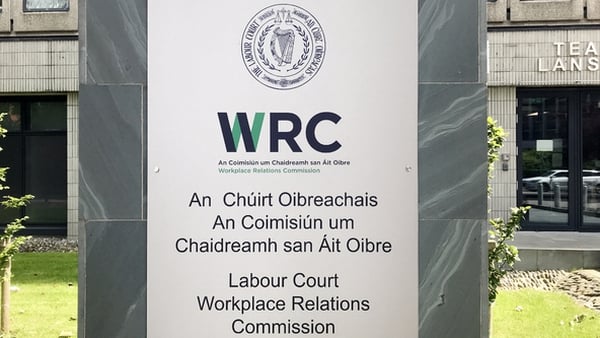New research on the spread of online misinformation and disinformation in Ireland has revealed that the influence of the far-right is growing.
The study by the Institute for Strategic Dialogue (ISD) also shows that tech companies are failing to enforce community guidelines to curb the spread of false, misleading and harmful content on social media platforms.
The research entitled 'Uisce Faoi Thalamh: An Investigation into the Online Mis- and Disinformation Ecosystem in Ireland' analysed more than 13 million posts from 1,640 accounts across 12 online platforms between January 2020 and April 2023.
Disinformation on the rise
The study found that activity within the mis- and disinformation ecosystem is growing across all platforms with the number of posts and engagement levels, as well as the number of active accounts, increasing year-on-year between 2020 and 2023.
According to the report, there are clear and obvious enforcement gaps on platforms that allows false, misleading or harmful content to survive.
Researchers found that Twitter, now called X, was the platform where the most activity within this mis- and disinformation ecosystem occurred for eight out of the nine topics analysed.
"Telegram continues to grow as a key platform for organisation and discussion within this mis- and disinformation ecosystem," according to the study.
Researchers found that people within the Irish mis- and disinformation ecosystem are struggling to break through on TikTok. Most accounts identified were subsequently suspended, but their videos reached more than one million viewers.
The use of monetisation and fundraising mechanisms is widespread within the Irish mis- and disinformation ecosystem, the study found.

Far-right plays a major role
According to the research, far-right groups and individuals, as well as alternative media outlets, play a major role within the mis- and disinformation ecosystem.
"Hateful ideologies spread with ease, with support for white nationalism, antisemitism and Islamophobia observed on platforms like Telegram and Instagram, while Holocaust denial and the promotion of Nazi material by Irish actors were constant on alternative platforms like Gettr and Gab," the study found.
"Alternative media outlets routinely produce conspiratorial and confrontational content towards mainstream media which is extremely popular online," according to the findings.
Topics are interconnected
Researchers noted that most topics are highly interconnected with the same people found to be discussing varying issues, with the closest links seen between conversations about health, Irish politics and immigration.
"While health and Covid-19 dominated discussions within the ecosystem during the pandemic years, discussions focused on the war in Ukraine, immigration and LGBTQ+ issues became the topics of choice during 2022 and the early months of 2023," the study found.
The top-performing posts within the mis- and disinformation ecosystem were often found to contain false, misleading and conspiratorial content.

Online discussions fuel offline unrest
The study found that online discussions often attempted to fuel offline hostility and violence, promoting anti-lockdown and anti-immigration mobilisation and encouraging protests in libraries, bookshops and schools to target the LGBTQ+ community.
Leading government figures were regularly discussed within the disinformation ecosystem and were the targets of threatening and violent rhetoric in relation to Covid restrictions, the arrival of refugees and asylum seekers and teaching children about LGBTQ+ issues.
According to the research, climate is becoming an increasingly important topic within the mis- and disinformation ecosystem, often being framed as part of the broader 'culture war'.
"Far-right political figures often exploit climate discussions to position themselves as the 'true defenders' of rural interests," the study found.
Disinformation ecosystem has 'exploded'
The report was authored by Aoife Gallagher, Ciarán O’Connor and Francesca Visser and supported by the European Media and Information Fund.
"We believe this is the most comprehensive piece of research done to date that explores this phenomenon in Ireland," the authors said.
"Through data-led analysis, it shows how this online ecosystem has exploded since 2020 and how online communities that were dominated by discussions about Covid-19 during the pandemic have now become conduits for hateful falsehoods related to immigrants and the LGBTQ+ community, with figures associated with the Irish far-right often leading these conversations.
"This investigation also shines a light on the fast-changing nature of the online ecosystem and highlights that there are clear and obvious enforcement gaps on social media platforms that allows false, misleading or harmful content to survive."
Speaking on RTÉ's Drivetime, Chair of the Oireachtas Committee on Justice and Fianna Fáil TD James Lawless and said the influence of the far-right is growing across Irish social media partially due to a fear of the unknown.
He said: "I think a lot of this comes through fear of the unknown, there is a bit of anti-establishment, there is a bit of a breakdown in trust.
"It is the same, I suppose social, economic factors that led to Trump in the US that led to Brexit in the UK. You could say it is as simple as the haves and the have-nots, but I actually think it goes a little bit beyond that."
He added that platforms needed to take some responsibility as algorithms push people into "narrow and narrowing" circles.





